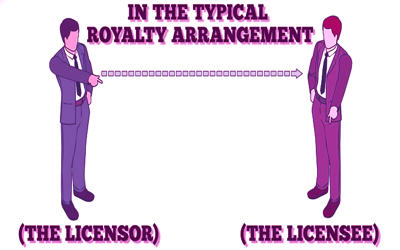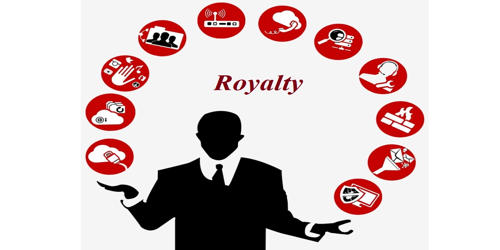Royalty is a sum paid to a patentee for the use of a patent or to an author or composer for each copy of a book sold or for each public performance of work. It is a payment made by one party to another that owns a particular asset, for the right to ongoing use of that asset. It is a payment made to someone in return for some transference of privileges e.g. A writer of a book is periodically paid a royalty on an agreed amount for the transference of this right in the book to the publisher. It is is an amount paid by a third party to an owner of a product or patent for the use of that product or patent. The royalty rate or the amount of the royalty is typically a percentage based on factors such as the exclusivity of rights, technology, and the available alternatives.
Royalty is defined as a person or a group of people related to a monarch, or a share of the proceeds paid to the owner for use of their work or their ownership rights. These are typically agreed upon as a percentage of gross or net revenues derived from the use of an asset or a fixed price per unit sold of an item of such, but there are also other modes and metrics of compensation. Royalties often deal with payments for the right to use intellectual property (IP), such as copyrights, patents, and trademarks.

Fig: Common Royalty Arrangement
The terms of royalty payments are laid out in a license agreement. A royalty is a legally-binding payment made to an individual, for the ongoing use of his or her originally-created assets, including copyrighted works, franchises, and natural resources. It is a consideration received by business entities or individuals who sell their creations to a third party for use. In most cases, royalties are revenue generators specifically designed to compensate the owners of songs or properties, when they license out their assets for another party’s use.
In terms of accounting, royalty is what a lessee pays to a lessor for the use of any rights, copyrights, franchises, or any such asset. Royalties appear in many different industries, but they serve a similar purpose in all uses. These royalties are granted by agreement, and they allow others to use the property, giving the owner the benefit of an income from this use. Royalties also protect the buyer from claims by the owner for improper use.
















